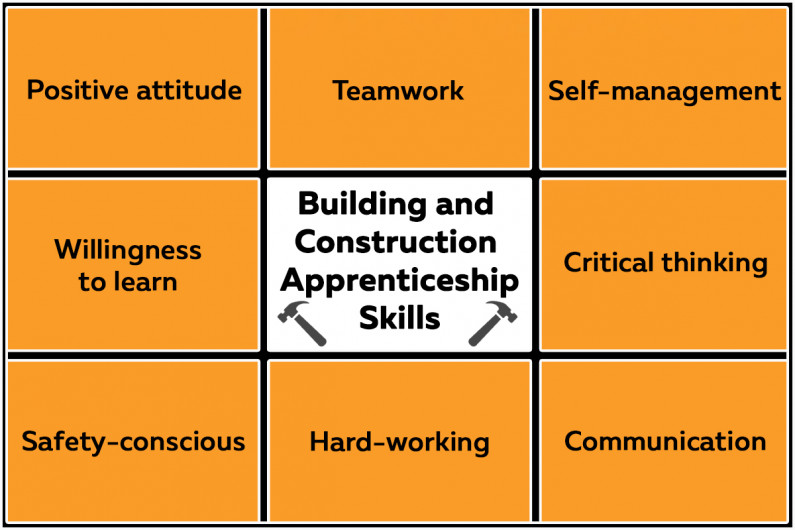Skills you need for building and construction apprenticeships

Find out what skills employers want you to have in the construction industry
What's on this page?
Now is a great time to work and get qualified in New Zealand’s construction industry. The Building and Construction Industry Training Organisation (BCITO) estimates that 80,000 construction jobs will be available over the next five years.
Job and training opportunities are good but these skills improve your chances of getting a job and apprenticeship.
Skills valued in the construction industry
Here are the main skills employers in the construction industry look for.
1. Positive attitude
Being positive and respectful of others helps you enjoy your job more. It also shows your employer and co-workers that you’re a valuable and friendly team member.
2. Teamwork
Construction projects require people to work well together as a team to deliver quality work safely and on time. Teamwork helps you build trust with your co-workers and employer.
3. Self-management
Being responsible for yourself is a valuable skill in the construction industry. You’ll have a better chance of finishing your training and dealing with the job if you manage your time and tasks well.
4. Willingness to learn
Being willing to learn shows your employer you’re interested in the work and increases your chances of learning your trade properly. New technologies, tools and construction methods mean you’ll need this skill to keep up with changes in the industry.
5. Critical thinking
The ability to think things through to avoid mistakes and get good results is an important skill in the construction industry. For example, a carpenter checks the weather forecast and schedules indoor jobs if it might rain so that work can continue.
6. Safety-conscious
Being aware of your surroundings and safety risks in the workplace can save lives on construction worksites. For example, knowing that exposed wiring is dangerous because of the risk of electric shock means you can report the hazard and get it fixed.
7. Hard-working
Hard work and physical tasks are part of working in construction. Staying fit helps you cope with the demands of your apprenticeship and life on the job.
8. Communication
Knowing how to write, speak and listen well helps you learn and do your job properly. You'll use these skills every day, for example, when ordering supplies, recording measurements or talking to co-workers.
Increase your chances of getting an apprenticeship
You can develop skills for the construction industry by looking for opportunities to learn, such as:
- getting involved in sports teams or school activities such as the Young Enterprise Scheme
- getting a driver’s licence, as you may need to travel to different worksites
- finding volunteer work or a part-time job related to construction
- getting construction work experience through the Gateway programme
- talking to people in the industry about their jobs.
Find out more
- BCITO website – read about what it’s really like on the job
- BCITO website – find out how to start your apprenticeship
Sources
- BCITO, ‘Surging Construction Industry Prizes Tech Teachers and Needs More’ (media release), 7 October 2019, (www.bcito.org.nz).
- Immigration New Zealand, ‘Construction and Infrastructure Skill Shortage List', 27 May 2019, (www.immigration.govt.nz).
Updated 13 Jan 2020